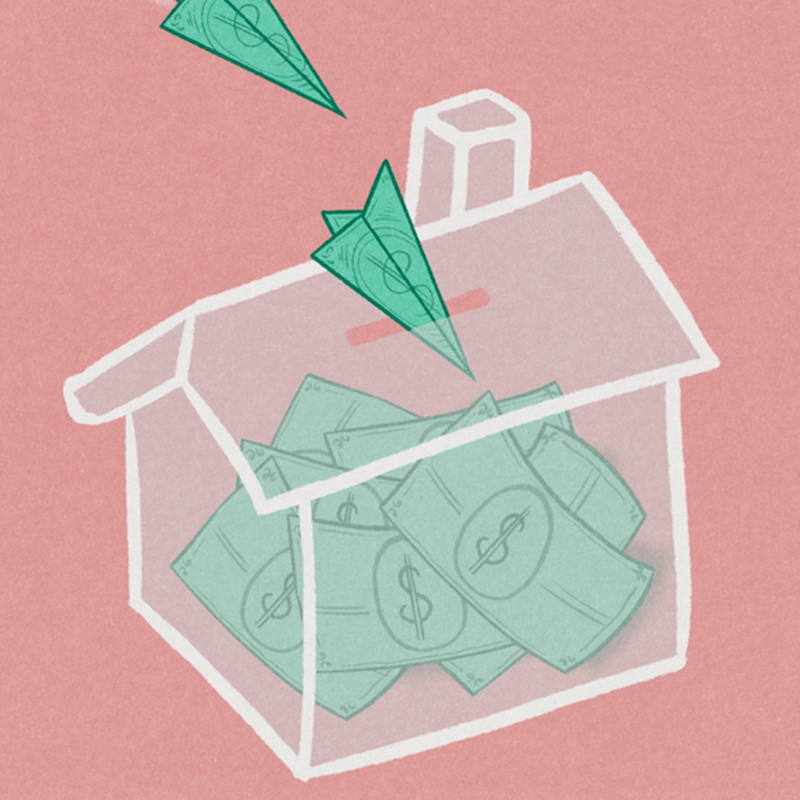Millennials Could Be Hit Hardest by the Bank of Canada’s Interest Rate Hike

Canadians, get ready to pay more to borrow money: The Bank of Canada, or BoC, announced a 0.50 per cent interest rate hike today to tame inflation, bringing its key interest rate up to 1.5 per cent, and signalled more hikes will come.
After slashing its key interest rate to 0.25 per cent at the onset of the pandemic to encourage consumers to spend, Canada’s central bank is moving full-speed ahead to rein in the same rock-bottom borrowing costs that are now contributing to high inflation.
While the BoC’s move to bump up interest rates won’t have an impact on how much you pay at the grocery store, it could cool down housing demand and make it more difficult for people to break into the real estate market. Canadians will now pay more for fixed-rate mortgages, variable-rate mortgages and other lines of credit, such as a home equity line of credit, or HELOC.
“People who’ve bought houses over the last two or three years at incredibly low interest rates have now got a one-and-a-half percent bump in the interest rate that they’re paying,” says Laurence Booth, a professor of finance at the University of Toronto’s Rotman School of Management. “It depends how they’ve structured their mortgage, but they’re going to start noticing that they’re not paying down their mortgage as quickly as they thought.”
Millennials, in particular, Booth says, will feel the impact. As of 2021, around 48 per cent of Canadians aged 25 to 35 owned a home and a quarter of them bought their property during the thick of the pandemic, taking advantage of low interest rates. And because the BoC indicated it will continue to bump up interest rates this year, more people will be squeezed out of the housing market, says Booth. Because while higher rates may lower housing prices, it also means fewer people may qualify for mortgages. “When the key interest rate goes up, then the amount of people that can borrow to buy a house goes down—and it is going to have an impact on demand,” Booth says. “Housing is extremely interest-rate sensitive.”
The BoC first raised rates by 25 basis points in March this year—the first hike since 2018—then announced another 0.50 per cent increase in April. (It was the first time the bank had raised rates by more than 25 basis points in two decades.) Borrowing costs typically increase in 0.25 per cent increments, but decades-high inflation is prompting central banks around the world to rethink their game plan.
In April, inflation soared to a 31-year high of 6.8 per cent—well above the central bank’s target range of two to three per cent. Higher prices for housing and food are the largest drivers of decades-high inflation in Canada. The average consumer paid 9.7 per cent more in April for food at stores compared to the year before, shelling out 10 per cent more for fresh fruits, 19.6 per cent more for pasta and 13.7 per cent more for a cup of coffee.
Gas prices rose at a slower pace in April compared to March, but consumers are still feeling the pinch at the pump: The average cost of gas topped $2 per litre for the first time in many parts of the country in May. Overall rising energy costs were also passed down to Canadians as it became more expensive to heat homes; natural gas prices rose 22.2 per cent on a year-over-year basis and other fuels rose 64.4 per cent.
The interest rate hikes are a double-edged sword for Canadians: Some homeowners who bought properties in the middle of the pandemic when interest rates were low may now find their budgets stretched thin to pay down monthly mortgage payments that have risen from the BoC’s interest rate hikes. But experts say while the hikes may feel painful right now, the goal of bringing rates back to pre-pandemic levels and combating inflation will benefit us—and our economy—in the long run.










